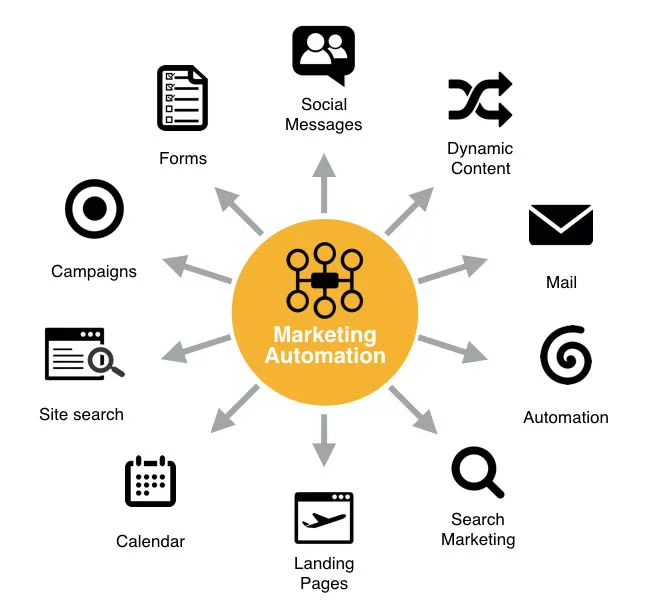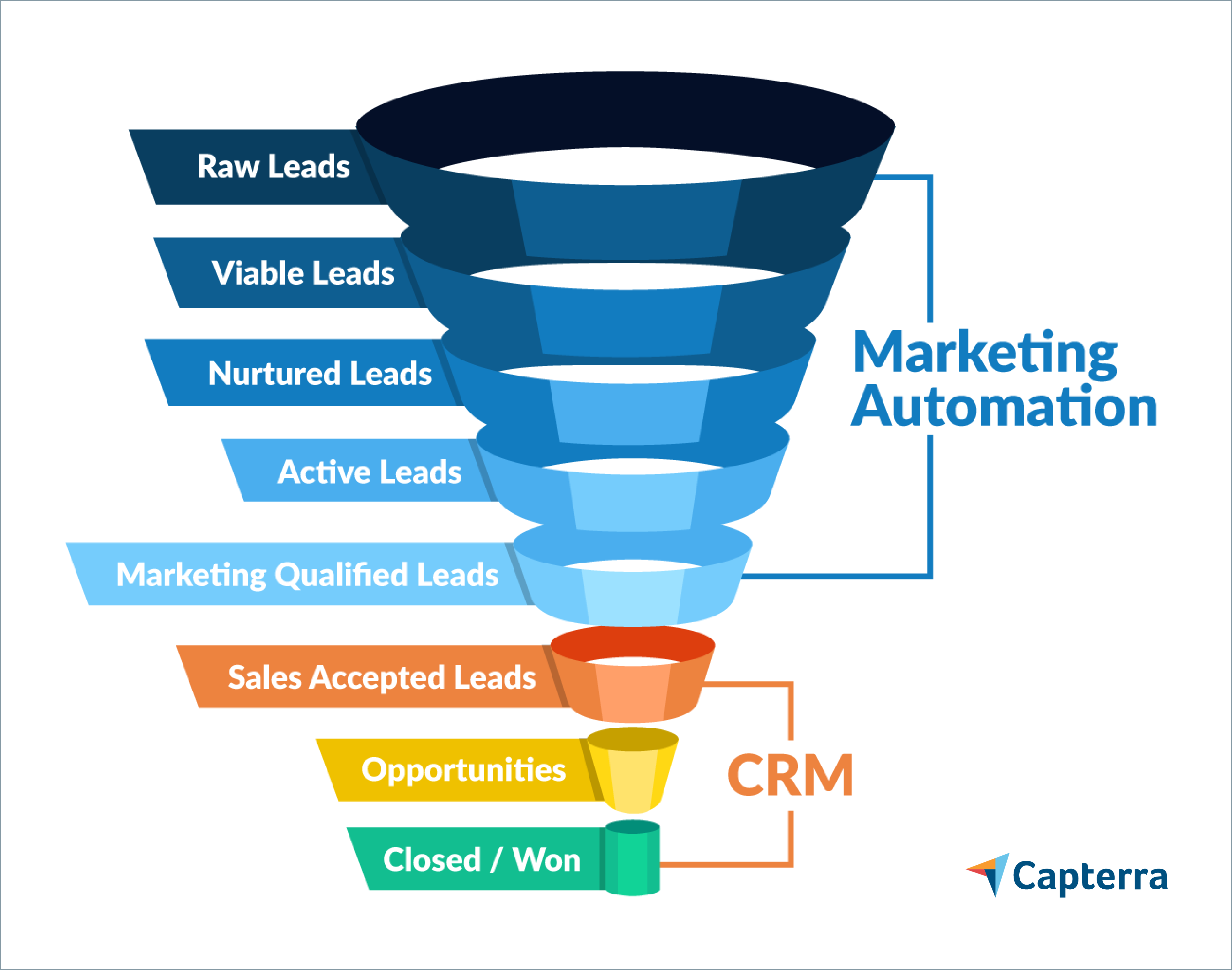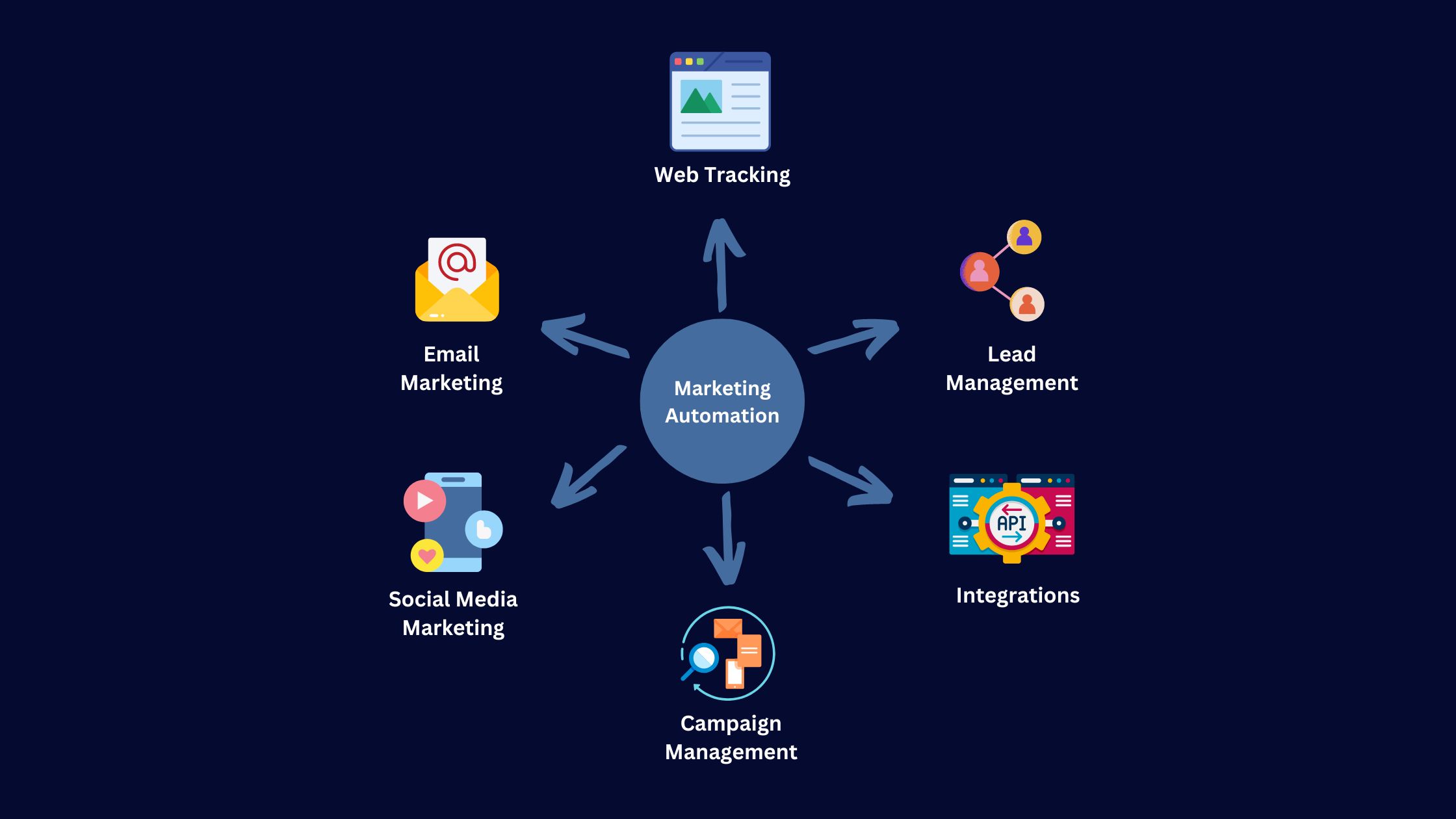In today’s digital age, businesses rely on various tools to stay competitive. Two essential tools are CRM and marketing automation software.
Understanding the difference between CRM and marketing automation software is crucial. Both serve unique purposes but can often be confusing. CRM, or Customer Relationship Management, focuses on managing interactions with customers. It helps companies nurture relationships and improve customer service.
Marketing automation software, on the other hand, automates marketing tasks. It aims to streamline processes and boost efficiency in campaigns. Knowing how each tool works and their benefits can help businesses optimize their strategies. This blog will delve into the differences, helping you choose the right tool for your needs. Keep reading to learn more about these powerful software solutions.
Core Features
Understanding the core features of CRM and Marketing Automation software is essential. Both tools serve different purposes but can complement each other. Their key features help businesses manage customer relationships and automate marketing tasks.
Crm Key Features
Customer Relationship Management (CRM) systems have several key features. First, they offer contact management. This keeps all customer details in one place. Second, they provide sales management tools. These tools track sales activities and pipelines. Third, CRMs offer customer support features. This includes ticketing systems and helpdesk support.
CRMs also have reporting and analytics. This helps in understanding customer behavior. Another feature is task management. It helps in organizing and prioritizing tasks. Finally, CRM systems often integrate with other software. This includes email, social media, and calendars.
Marketing Automation Key Features
Marketing Automation software focuses on different core features. First, it offers email marketing. This includes automated email campaigns. Second, it has social media management tools. These tools schedule and publish posts.
Another key feature is lead scoring. This helps in identifying potential customers. Marketing Automation also offers analytics and reporting. This tracks campaign performance. Additionally, it includes customer segmentation. This helps in targeting specific groups with tailored content.
Landing page creation is another important feature. This helps in capturing leads through forms. Finally, these tools often integrate with CRMs. This ensures seamless data flow between marketing and sales.
Target Users
Understanding the target users of CRM and marketing automation software is essential. Each tool serves different purposes and caters to distinct audiences. Knowing who uses these tools can help businesses decide which one fits their needs better.
Who Uses Crm
CRM software is designed for customer relationship management. Sales teams, customer support, and service professionals often use CRM. They need to track customer interactions and manage sales pipelines. A CRM helps them organize contacts and automate follow-ups. This leads to better customer service and higher sales.
Who Uses Marketing Automation
Marketing automation software is for automating marketing tasks. Marketing teams and digital marketers use this tool. They need to manage campaigns, send emails, and track results. Marketing automation helps them save time and improve their marketing efforts. It allows for personalized customer communication at scale. This leads to more effective marketing strategies and higher engagement.
Benefits
Understanding the benefits of CRM and Marketing Automation Software can help businesses decide which tool to use. Each has its own unique advantages. These advantages cater to different aspects of business operations. Let’s dive into the specific benefits of each.
Crm Benefits
CRM software helps businesses manage customer relationships. It stores customer information in one place. This makes it easy to access and update. With CRM, you can track customer interactions. This includes emails, calls, and meetings.
CRM also improves customer service. It provides a complete view of the customer. This allows for personalized communication. It can also automate routine tasks. This saves time and reduces errors. Sales teams can use CRM to forecast sales. This helps in planning and decision-making.
CRM software also supports team collaboration. It allows team members to share information. This leads to better coordination. CRM can integrate with other tools. This makes it a versatile solution for businesses.
Marketing Automation Benefits
Marketing automation software focuses on automating marketing tasks. It can schedule and send emails. This ensures timely communication with customers. It also helps in managing social media posts. This keeps your online presence active.
Marketing automation can track customer behavior. This includes website visits and email opens. It can segment your audience based on behavior. This allows for targeted marketing campaigns. You can also nurture leads with automated workflows. This increases the chances of conversion.
Marketing automation provides detailed analytics. This helps in measuring campaign performance. You can see what works and what doesn’t. This allows for data-driven decisions. Marketing automation also integrates with CRM. This creates a seamless flow of information between sales and marketing teams.

Credit: www.woopra.com
Integration Capabilities
Understanding the integration capabilities of CRM and marketing automation software can help businesses streamline their processes. Integration determines how well these tools work with other systems. It can also impact data flow and overall efficiency. Let’s explore the integration capabilities of each.
Crm Integration
CRM software often integrates with various business tools. These can include email platforms, social media, and e-commerce systems. Such integration helps in managing customer interactions seamlessly. It ensures that all customer data is in one place. This centralization can improve customer service and sales efficiency.
Most CRM systems offer API support. This allows custom integrations to fit specific business needs. It also means businesses can connect their CRM to almost any third-party application. This flexibility is crucial for growing businesses. They need systems that can adapt as they evolve.
Marketing Automation Integration
Marketing automation tools focus on integrating with marketing channels. These include email marketing services, social media platforms, and content management systems. Integration with these tools helps in automating repetitive tasks. It also allows for more targeted and personalized marketing campaigns.
Many marketing automation systems offer robust analytics integrations. They can connect with Google Analytics and other web tracking tools. This helps in monitoring campaign performance in real-time. Businesses can adjust their strategies based on these insights. It ensures their marketing efforts are more effective.
Like CRM systems, marketing automation tools also support API integrations. This allows businesses to create custom workflows. They can integrate with their existing tech stack. It ensures a smoother and more cohesive marketing strategy.
Use Cases
Understanding the use cases of CRM and Marketing Automation software can help businesses choose the right tool. Both tools have unique benefits and serve different purposes. In this section, we will explore the distinct use cases for each.
Crm Use Cases
CRM software is designed to manage customer relationships. It stores customer data, tracks interactions, and helps improve customer service. A common use case is sales pipeline management. Sales teams use CRM to track leads and opportunities. Another use case is customer support. CRM systems help support teams resolve issues faster. Businesses also use CRM for customer segmentation. This helps in targeting specific groups with personalized messages.
Marketing Automation Use Cases
Marketing Automation software automates repetitive marketing tasks. It is used to schedule and track campaigns. One common use case is email marketing. It helps send personalized emails to a large audience. Another use case is lead nurturing. Marketing Automation tools score leads based on their interactions. This helps in sending the right message at the right time. Businesses also use it for social media management. It schedules posts and tracks engagement across platforms.

Credit: www.capterra.com
Challenges
Both CRM and marketing automation software provide great benefits. But they also come with unique challenges. Understanding these challenges can help businesses make better decisions. Let’s dive into the specific challenges faced by each type of software.
Crm Challenges
Customer Relationship Management (CRM) software faces several challenges:
- Data Management: Managing large volumes of customer data is complex. Data accuracy and consistency are crucial.
- Integration: Integrating CRM with other systems is often difficult. It requires technical expertise and time.
- User Adoption: Employees may resist using new systems. Proper training and support are essential.
- Customization: Customizing CRM to fit specific business needs can be tough. It often involves extra cost and effort.
- Scalability: As a business grows, the CRM must scale. Some CRMs struggle to handle increased data and users.
Marketing Automation Challenges
Marketing automation software also faces its own set of challenges:
- Content Creation: Creating engaging content for campaigns is time-consuming. It requires creativity and resources.
- Campaign Management: Managing multiple campaigns can be overwhelming. Effective organization and tracking are critical.
- Data Segmentation: Segmenting customer data accurately is vital. Incorrect segmentation can lead to ineffective campaigns.
- Integration: Like CRM, integrating marketing automation with other tools is challenging. It needs proper planning and execution.
- Analytics: Analyzing the performance of campaigns can be complex. It requires understanding metrics and making data-driven decisions.
Choosing The Right Tool
Selecting between CRM and Marketing Automation software can be challenging. Both tools serve unique purposes and cater to different business needs. The key is understanding your specific requirements and how each tool can meet them. Let’s explore when to choose each tool.
When To Choose Crm
Customer Relationship Management (CRM) software is ideal if your focus is on managing customer interactions and relationships. It helps you store customer data, track interactions, and manage sales pipelines. Choose CRM if you need:
- Lead management: Track and manage potential customers throughout the sales process.
- Customer support: Resolve customer issues and track support tickets efficiently.
- Sales forecasting: Predict future sales and set realistic targets.
- Account management: Maintain detailed records of customer interactions.
When To Choose Marketing Automation
Marketing Automation software is perfect if your goal is to automate marketing tasks and workflows. It helps you create campaigns, nurture leads, and measure marketing efforts. Consider Marketing Automation if you need:
- Email marketing: Automate email campaigns to engage with your audience.
- Lead nurturing: Develop long-term relationships with potential customers through personalized content.
- Campaign management: Plan, execute, and analyze marketing campaigns.
- Analytics: Track the performance of marketing efforts and optimize strategies.
Understanding these differences will help you choose the right tool for your business. Both CRM and Marketing Automation software have unique strengths and can significantly improve your business operations.

Credit: www.rolustech.com
Frequently Asked Questions
What Is Crm Software?
CRM software helps businesses manage customer relationships. It stores customer data, tracks interactions, and improves customer service.
What Is Marketing Automation Software?
Marketing automation software streamlines marketing tasks. It automates email campaigns, social media posts, and lead generation processes.
How Do Crm And Marketing Automation Differ?
CRM focuses on customer relationship management. Marketing automation focuses on automating marketing tasks. Both enhance business efficiency.
Can Crm And Marketing Automation Integrate?
Yes, CRM and marketing automation can integrate. Integration provides a comprehensive approach to customer relationship management and marketing efforts.
Conclusion
Choosing between CRM and marketing automation depends on your business needs. CRM focuses on managing customer relationships. It helps track interactions and sales. Marketing automation targets lead generation and nurturing. It automates email campaigns and social media posts. Both tools enhance efficiency in different ways.
Understanding their functions can improve your strategies. Pick the right tool for your business goals. Balance your resources and requirements. With the right choice, you can boost productivity and growth.









